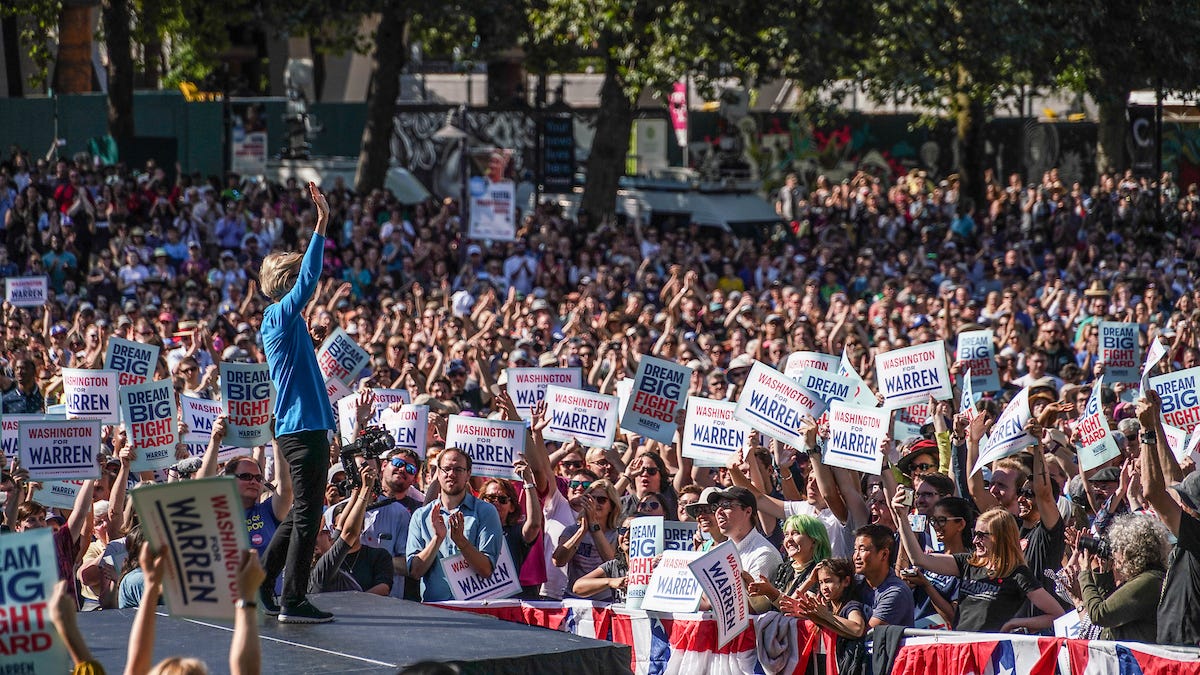I think there are two flaws to this argument, one of which
@jaycee has already outlined. I do think Bernie's Bizarro-World logic takes over a bit, in the sense that after Warren said, when asked point-blank, that her memory was Bernie saying a woman couldn't win the election, the Bernie camp came out in force to assure us there was no way he said that, or that he meant it in the way Warren understood it. That has been followed by recent weeks of the Bernie camp telling us that Warren must drop out of the race because she can't win and her campaign is threatening the future of America (because she's hurting Bernie's chances).
The other part is this assumption that all voters are predictably rational actors who, given the withdrawal of one progressive candidate, will automatically revert to the other progressive candidate. But, and I think someone else had maybe pointed this out last night, there were polls showing that while Warren was a popular 2nd choice for Bernie voters, Bernie tended not to be the 2nd choice of many Warren voters.
The last element is that Warren deserves all the credit for ruining Bloomberg at the Las Vegas debate just *two weeks ago.* She's been a pivotal force in this primary, even if the net result wasn't more delegates in her column.
Somewhat tangentially, I thought this Vox writeup on Warren's popularity ceiling was a huge bummer for a few reasons:
Many college grads are living in the Warren bubble.

www.vox.com
We've previously had a conversation around how Bernie and his activists are cognizant of the fact that he will have to make compromises on his agenda if elected, because he won't have a cooperative legislative majority. Why is foreknowledge that Bernie will eventually bend on progressive ideals once he's in office not a problem when other candidates bending on progressive ideals to get into office, is?

www.nytimes.com




